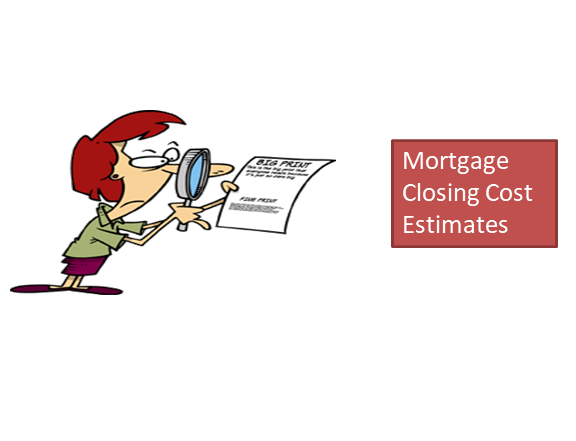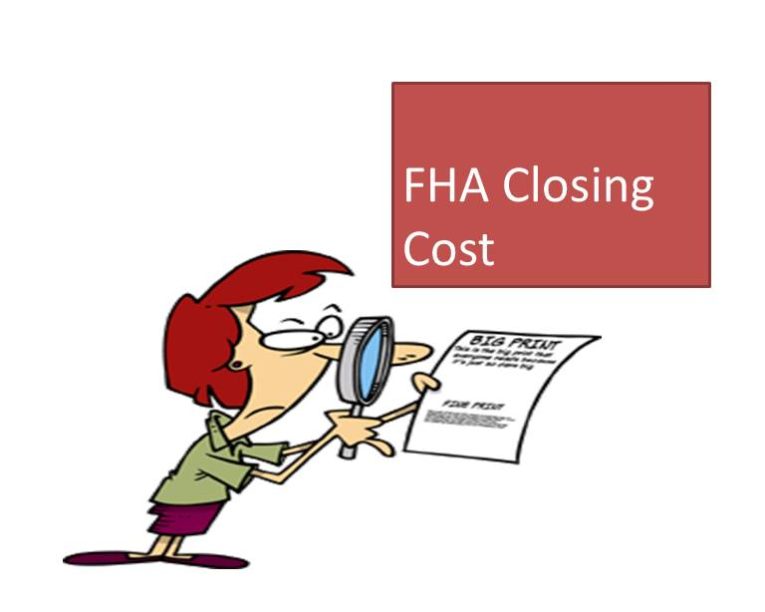Mortgage Closing Costs Explained- note that changes occur in mortgage rules and regs frequently…
*this post has been updated 03-02-23
The average amount of closing cost varies somewhat per state. However, an overall average closing cost is from 3% -6% per loan amount. For example, if you have a $400,000 loan amount your closing can be $12,000 to $24,000.
What You Will Find In This Post
-
When Seller Pays Your Closing Cost
-
The Lender can Negotiate Loans With No Closing Cost
-
Closing Cost Broken Down and Lender Fees in Mortgage Closing Costs Explained
-
Fees Paid to Third Parties
-
Attorney Fees/Title Company Fees
-
Additional Attorney Frees-Title Company
-
Title Insurance Policy
-
Escrow Items-closing you must pay
When the Seller Pays Your Closing Costs
In prior years, the only way around higher closing costs was for the seller to contribute to that cost. However, to be fully aware, when the seller contributes, this amount of the closing cost is in the sale price final figures. Therefore, you are actually paying for your own closing, but in a different format.
Shush…. I am not supposed to tell you that. However, you are smart and have figured this out already. Especially true, if you have bought and sold a home previously.
However, the above is normal, and if you get the true value or (sales price) of the home you have no other choice. Unless you pay all of your closing costs out of pocket. The appraisers must be careful these days, especially since the mortgage meltdown, to make sure the value is not inflated.
The Lender Can Negotiate Loans with No Closing Costs
Lenders have the flexibility to pay closing costs on a loan. However, you will normally pay that cost with a higher interest rate over the life of the loan. Meaning the interest rate you are offered is higher than it would be if you paid or the seller paid the cost.
It is wise to ask what the interest rate would be if you or the seller paid the cost. Many people do not know to see how much the interest rate on the loan is fluctuating for this benefit. Know what is the interest would be with you paying all of the closing costs.
Note that not any lender is going to give you a free loan. That is just not the case. The lender must make money, and they will one way or the other. They are in business for a profit, and they must pay the Loan Officer for his/her work.
Closing Cost Broken Down and Lender Fees in Mortgage Closing Costs Explained
Origination Fee – This fee is usually across the board at 1.000% of the loan amount, however, it could be .500% if the lender chooses. When you use a Broker (who is the middle man), their fee can also be in the origination fee.
Discount Points – These points are for buying down the rate of interest on your loan. Discount points should only be in your Loan Estimate if you are buying down the rate. If there are discount points and you have not asked to buy down the rate of interest, find out why and have them removed.
Example: The rate quote for today is 5.750%, you want a 5.500%, they will charge discount points to give you the rate you desire.
Underwriting Fee – This fee is something like $300 – $650 +-and the amount depends upon the lender. This is a lender charge for underwriting, and approving your loan.
Processing Fee – This fee is a lender fee for processing your file (gathering all of the documentation), and can be a fee of $300 -$650+- also.
Courier Fees – Administration – $100 *varies
Rate Lock Fees-Application $200 – $500 +- *varies
Fees Paid to Third Parties
Appraiser Fee – $500 + – depending upon the depth of the appraisal- the type -construction appraisal, number of units, single-family or multi-family, rental appraisal, etc.
Credit Report – $25 for each person +- *varies
Closing Attorney Fees – Title Insurance Fees
The Closing Attorney or Closing Agent represents the seller, the lender, and you the buyer. It is their duty to provide sound, accurate, and pertinent information about the subject property without any discrepancies. However, humans make mistakes, now and then.
Per Title Penguin for 2018 the average title policy for lenders was – $544 and the owner’s policy was $830. *Varies
The Closing Attorney interacts with the Title Insurance Company. They do the title examination, making sure the title is free of liens, no other people are on the title, (this has happened), no encroachments, and all legal land issues are intact.
Additional Attorney Fees Included or *Title Insurance Company
The Attorney will record the mortgage/deed of trust and those fees are $100-250 +-
A tax service fee of $50 +- *varies
Notary Fees $100 *varies
Closing Protection Letter – $50 *varies
All of the latter is in conjunction with closing the loan/attorney/title insurance.
Survey * $500+ this can be expensive and if you do not have a copy of one that has been done recently or is not on file, you would need to know the property lines.
The attorney draws up the documents with the terms of the loan that have been approved by the lender. The note, mortgage, closing disclosures, and a title binder at closing. The original title policy is delivered after loan closing and then sent to the lender.
The duty of the Closing Attorney is to make sure the title is free of liens, no other people are on the title, (this has happened), no encroachments, all legal land issues are intact, and provides insurance coverage.
Title Insurance Policy– Up to $1,000 *varies
Owner policy – this policy is for the applicant’s benefit and gives you information that you may need down the road. It includes the same information as above.
Lender Policy – this one is required as this includes all pertinent information about the property, prior loans, prior owners, liens, taxes, encroachments, and all property standards.
Title insurance insures the lender and buyer from defects in the title that could occur.
A Title Insurance Company can close loans- see further information in Title Attorneys and Title Companies. Title insurance insures the lender and buyer from defects in the title that could occur.
Escrow Items – closing you must pay
- Interest will accrue from – when the loan is closed until the end of the month.
- Homeowners Insurance – 12-month policy + 2 months cushion/escrow
- Homeowner’s association fee – (if the property is a condo or PUD).
- Flood Insurance – if the property is in a flood zone
- Property taxes – depending upon what is due, plus escrow amount needed
*All fee amounts used in this post are examples and may vary re: mortgage lender, broker, title company, and attorney.



